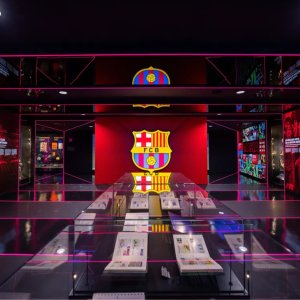In the north of Lanzarote, integrated in the volcanic landscape, is Lanzaloe: the largest organic Aloe vera plantation in Europe. It is surprising how this type of agriculture is becoming increasingly popular on the island, as it faces great challenges:
Being a volcanic island, Lanzarote's soil is rich in minerals such as sodium, magnesium, calcium and potassium, among others, but its desert character is very limiting for agriculture. "There is a tendency to consider that volcanic islands, such as Hawaii, are very fertile. In their case it may be true, but we, because there is almost no rainfall, have little vegetation and, therefore, the soil has very little organic matter, erodes easily and lacks edaphic elements such as nitrogen and carbon," explains José Imery, head of Finca Lanzaloe.
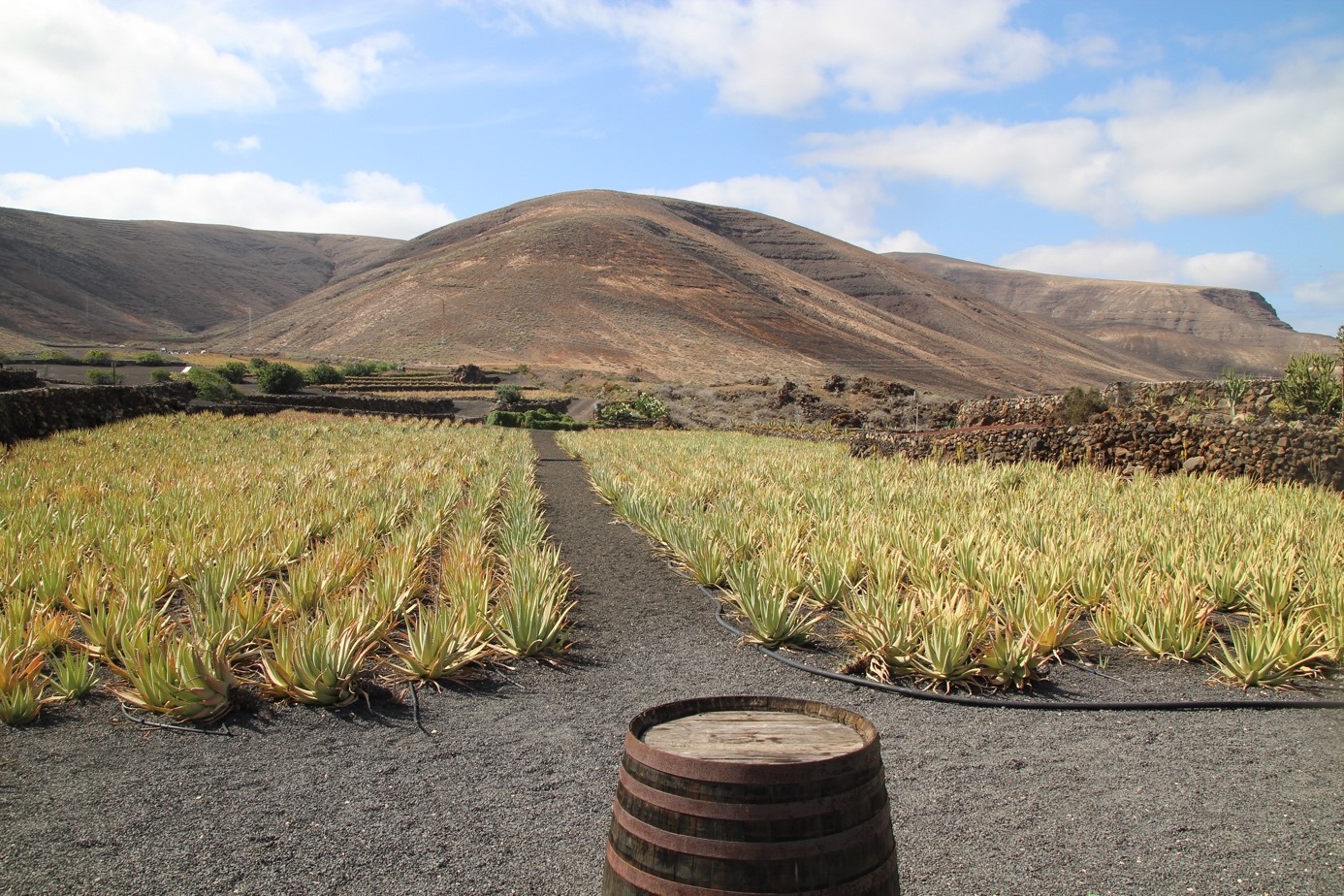
To this scarcity of water and organic matter in the soil must be added a further difficulty: in Lanzarote there are no rivers or major aquifers and, therefore, irrigation for crops comes mainly from desalination plants that make sea water drinkable. This water contains traces of sodium and, if used without control, salinizes the soil too much. Lanzaloe's technicians therefore take measures to ensure that they use only the water strictly necessary to produce economically profitable biomass. In this way, this scarce resource on the island is not wasted either.
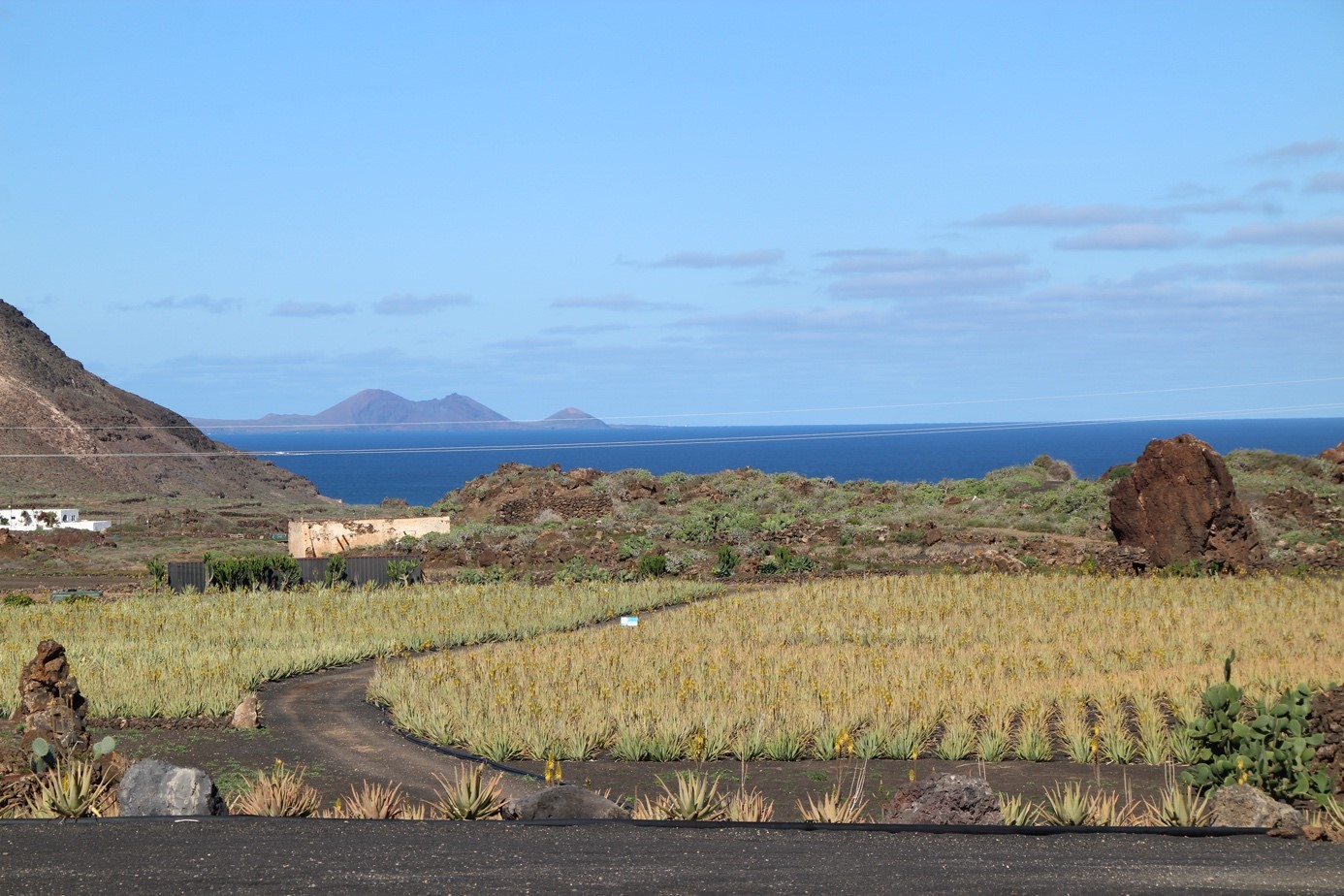
In organic farming the use of artificial fertilizers or other synthetic chemicals is not allowed, so organic farmers in Lanzarote have to scramble to get fertile soils. Imery proudly tells us about Lanzaloe's system:
"We are a zero organic waste company. We use the pulp that is inside the Aloe vera stalk, but we have to discard the rest of the leaf. In total, we get almost 50% agro-industrial waste annually, between 30,000 and 40,000 kg per hectare. We take it all to a site on the farm where we compost it and introduce it into a vermiculture process."
Vermiculture is a technique that allows greater humification of the compost to transform it into fertile fertilizer for the soil through the use of red worms. Therefore, with this circular economy system, Lanzaloe takes advantage of all the nutrients it produces, thus achieving fertile soil.
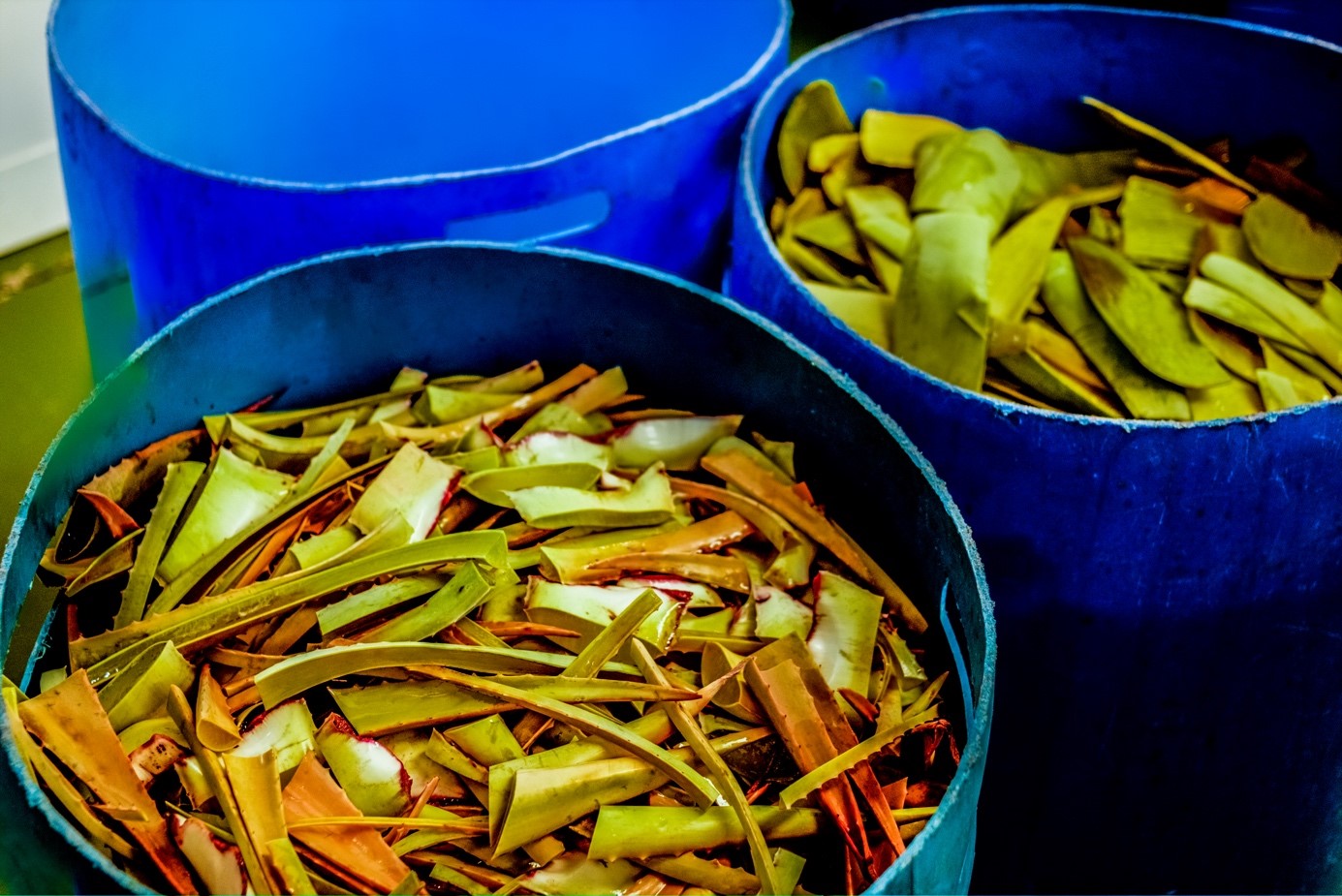
In other crops, such as vines, some organic companies use a more traditional method: manure. On an island like Lanzarote, where resources are very limited, organic farming has a long history and the use of manure from goats, camels and horses has always been present. Now, thanks to science and technology, it is possible to optimize the sanitization and proper use of this natural fertilizer.
All this valuable knowledge about sustainable land management is shared in farmers' groups such as Regenerando Lanzarote. Here, they seek to go beyond organic farming. The microbiology of the soil is very important and is seriously damaged by overexploitation, so in this group they train farmers to learn how to regenerate the soil.
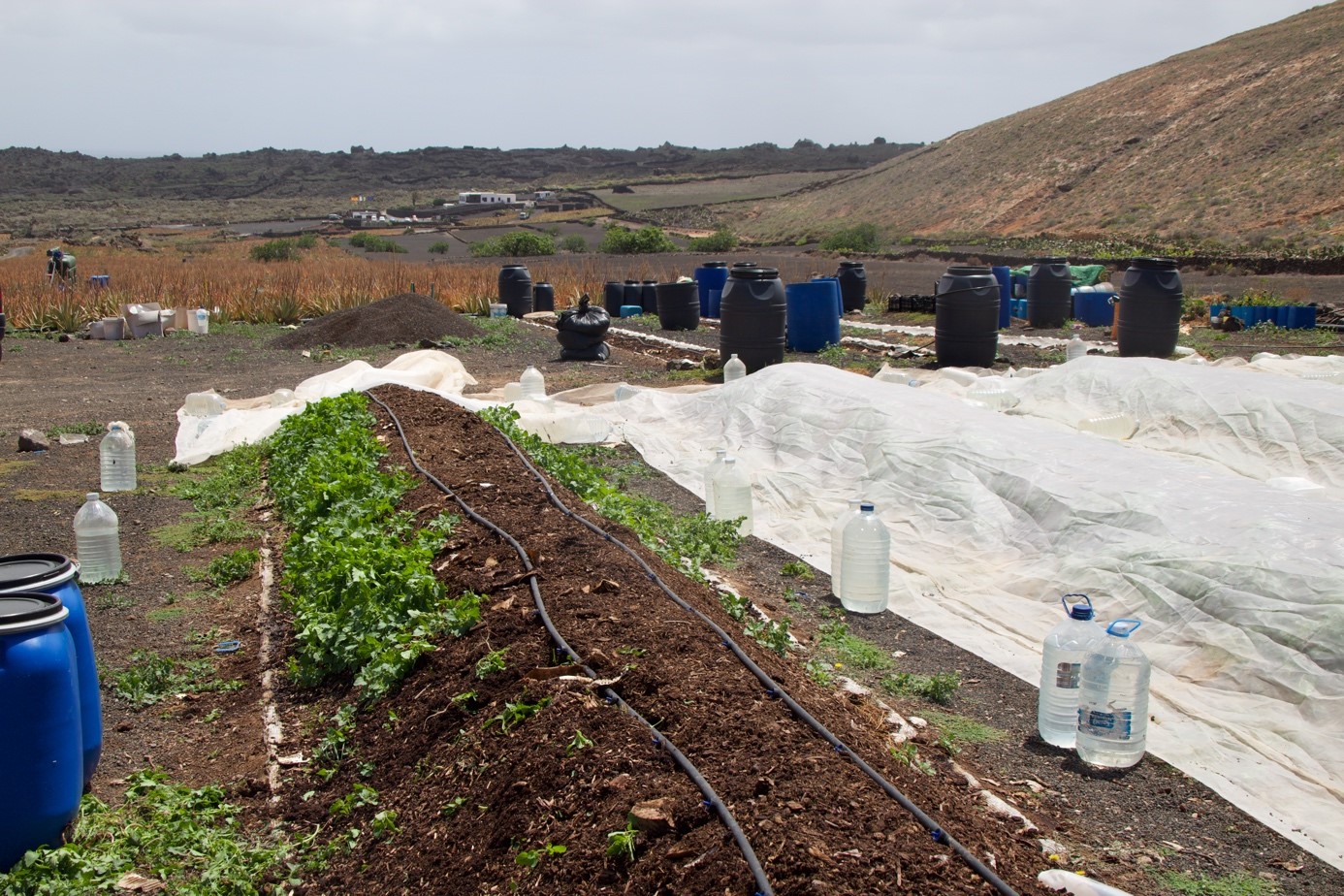
According to Imery, all these efforts are necessary for a sustainable future, which is why organic farming is already a global trend. "Any company must be sensitized to the planet and climate change. It is a global necessity to migrate towards organic farming and to use resources sustainably. We also contribute to the environment by not pruning the Aloe vera flowers. These are very rich in nectar and pollen that help in the feeding of different hymenopterans, including the black Canary Island bee, also butterflies, beetles and many other insects and birds."
In turn, other organic vegetable companies support school and social canteens. This is part of a program of the Government of the Canary Islands known as Ecocomedores. In total, 25% of Lanzarote's organic production goes to this program, which guarantees a fair price set annually by the producers.
Finally, as it could not be less on an island like Lanzarote, organic agriculture is also a tourist attraction. For example, the Finca de Lanzaloe is included in the list of tourist attractions. It offers a guided tour where, as Imery explains, tourists usually show a lot of interest. "They always ask us about our fertilization and waste management system. They are critical tourists, not passive, very well trained in organic farming."












